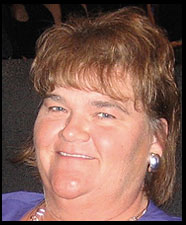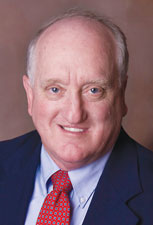 It’s a fact: all of us will age. Some of us will age healthier than others and be able to stay active and independent until our last days while others will need some assistance as they go through the process. It’s likely that most of our readers have not yet reached their senior years and are still active in their careers, families and hobbies. However, many of our readers have parents or grandparents who have reached the age where they may need some caregiving or may be ready to take the next step and move into a retirement community. If you’re like most children, you want your parents to be the happiest and healthiest they can be as they age. However, you’re busy with your life and probably do not have the time or expertise to be their full or part-time caregiver. It’s important for children to know the different resources that are available to help them with the task of caring for their senior loved ones.
It’s a fact: all of us will age. Some of us will age healthier than others and be able to stay active and independent until our last days while others will need some assistance as they go through the process. It’s likely that most of our readers have not yet reached their senior years and are still active in their careers, families and hobbies. However, many of our readers have parents or grandparents who have reached the age where they may need some caregiving or may be ready to take the next step and move into a retirement community. If you’re like most children, you want your parents to be the happiest and healthiest they can be as they age. However, you’re busy with your life and probably do not have the time or expertise to be their full or part-time caregiver. It’s important for children to know the different resources that are available to help them with the task of caring for their senior loved ones.
Helping Loved Ones Remain in the Home
Many seniors want to remain in their home and it’s easy to see why. “There are several advantages to seniors who are able to remain in their own homes rather than move to a long-term care setting,” states Rick Magill with Comfort Keepers. “Perhaps the most striking advantage is preservation of autonomy and self-determination. Home is perceived to be a place of safety and independence. Generally, we are most comfortable and feel ‘more ourselves’ in the comfort of home.”
 Teresa Million with Freedom In Home Services adds, “Home is a familiar place and many people do much better in their own homes than they would anywhere else. In addition, remaining in their own home is often more economical. They also have more privacy and independence in their own home.”
Teresa Million with Freedom In Home Services adds, “Home is a familiar place and many people do much better in their own homes than they would anywhere else. In addition, remaining in their own home is often more economical. They also have more privacy and independence in their own home.”
Even though your senior loved ones may prefer staying in their home, you do need to look at more than just their preferences when you are helping them make living decisions. “There are a number of factors to consider, including how much care and attention your loved one needs when you’re not there,” points out Jim Janicki with Hillcrest Health Services. “If your loved one requires home care nearly around the clock, or is at risk for wandering away, it may be more beneficial to consider a supportive living environment. But if your loved one simply needs some help with personal care like bathing and dressing, housekeeping services and companionship, they may find staying in their familiar surroundings at home is the most comfortable option. Home care is best utilized as an extension of your own caregiving efforts. Work closely with your home care provider to develop a plan for caring that gives your loved one the best of both worlds—the personal attention they expect from you with the expertise of a caring companion who meets their extra care needs.” 
“The advantages of a professional providing care to seniors are many,” adds Rick Magill with Comfort Keepers. “Mom or Dad may not be ready to admit to their adult children that they need help. As proud leaders, the dignity of older citizens rests on the values of independence, autonomy and perseverance. Having these values decrease or disappear can be a painful loss. A professional caregiver can become a trusted ally, invaluable support and wonderful gift to help a senior preserve the most important of values. Further, when a professional caregiver works with a senior in his or her home, it allows the adult children and others be family. For a generation that has endured immense challenges and threats in a lifetime, they have earned the right to dignity.”
Teresa Million with Freedom In Home Care explains, “Often it is difficult for loved ones to change roles and become the caretaker or for the parents to allow the children to be their caretakers. Many times, the children are so busy with their own families and careers that they do not have the extra time to provide all that is needed in these situations.”
Choosing the right in-home care for you and your loved ones is very important and can make all the difference when it comes to how long your parent can remain in their own homes. “There are many home care companies available in the Omaha metro area to choose from,” states Teresa Million. “One important factor in choosing one is to make sure they accept your insurance and also that they offer the services to meet your needs.”
Jim Janicki with Hillcrest Health Services concludes, “When looking for a home care provider, you should research online and ask friends about their experiences with local providers. Then interview a few providers to learn their differences in philosophy, techniques and policies. Ask for references that you can call. From my view, choosing a provider that is part of an integrated system can be more beneficial than choosing a stand-alone provider in case additional care or services are needed.”
Transitioning to a Retirement Community
 Sometimes, it just makes more sense for a senior to move out of the home and into a retirement community. “Companionship is the number one reason why retirement communities are often the right choice for seniors,” states Galen Moes with Elk Ridge Village. “Seniors can interact with their peers and they are not lonely in their home. In addition to that, we offer many choices for activities from outings to exercise classes. Security is another great reason to live at Elk Ridge Village. We offer a secure environment with 24-hour staffing. Finally, meals! We offer three very nutritious meals every day, served restaurant-style in our dining room.”
Sometimes, it just makes more sense for a senior to move out of the home and into a retirement community. “Companionship is the number one reason why retirement communities are often the right choice for seniors,” states Galen Moes with Elk Ridge Village. “Seniors can interact with their peers and they are not lonely in their home. In addition to that, we offer many choices for activities from outings to exercise classes. Security is another great reason to live at Elk Ridge Village. We offer a secure environment with 24-hour staffing. Finally, meals! We offer three very nutritious meals every day, served restaurant-style in our dining room.”
If your senior loved one seems hesitant to move out of their home, consider what Lisa Arp with SilverRidge has to say: “Advise them to do some research and see what’s out there. Too many folks of this generation consider all facilities to be like nursing homes and that is not true. Also, I would say that their quality of life will be better, allowing them to live a longer, happier life. This allows them to see great grandchildren be born, attend weddings and be a part of other landmark things they might miss if they stay at home. Moving to a retirement community may also help them avoid an incident such as a fall that might require them to go to a skilled nursing facility.” If they are still resistant, Lisa advises the children consult with their parent’s doctor. “If the senior will not liten to the child, they generally will listen to the doctor because they have had them as a patient for quite a while. Also, do the research necessary. Take them to lunch at the community. This will seem less threatening and give them the feeling of participating in the decision of where they should move.”
Galen Moes with Elk Ridge adds, “The best advice we can offer the children of seniors considering a move is don’t wait too long. Get the family together and openly discuss the many options available and the benefits for living in a retirement community. Many times, families come to us in a crisis situation and have never openly discussed retirement living with their parents. At the point of crisis, you really limit your choices.”
When choosing a community, there are some important things to keep in mind. “Staff tenure is very important as is the retirement community’s reputation,” says Galen. “One of the best questions to ask is how long has their management team been in place. When you tour, take some time to visit with the manager, staff and the current residents. We all love familiarity in our lives. How wonderful it is to know the same familiar faces will be there every day to greet you at lunch!”
Other Considerations
Counseling
 The aging process is not easy, either on the person experiencing age-related issues or the loved ones or caregivers of the elder. Counseling can sometimes help ease the process and provide some comfort to those experiencing emotional turmoil. Mindy Crouch with Pando Geriatric Counseling, P.C. offers mental health counseling in nursing homes, assisted living communities and for homebound patients. “We focus on grief recovery counseling, cognitive behavior counseling, animal-assisted therapy and supportive therapies,” says Mindy. “Everyone needs someone to talk to and it is hard sometimes for the aging population to get around for socialization and counseling. We can come to them and reduce the stress of getting counseling. We also have an office where we can offer ‘in office’ sessions for family members. We can hold family sessions with their loved ones and individual counseling to help the caregivers through this time. We can also offer education seminars at facilities to help the caregivers better interact with the residents.”
The aging process is not easy, either on the person experiencing age-related issues or the loved ones or caregivers of the elder. Counseling can sometimes help ease the process and provide some comfort to those experiencing emotional turmoil. Mindy Crouch with Pando Geriatric Counseling, P.C. offers mental health counseling in nursing homes, assisted living communities and for homebound patients. “We focus on grief recovery counseling, cognitive behavior counseling, animal-assisted therapy and supportive therapies,” says Mindy. “Everyone needs someone to talk to and it is hard sometimes for the aging population to get around for socialization and counseling. We can come to them and reduce the stress of getting counseling. We also have an office where we can offer ‘in office’ sessions for family members. We can hold family sessions with their loved ones and individual counseling to help the caregivers through this time. We can also offer education seminars at facilities to help the caregivers better interact with the residents.”
“Our services are covered by most insurances, which makes our services cost effective and manageable for most people,” continues Mindy. “Our body is all connected. It is amazing how powerful the mind is and it is important for people to know how anxiety, depression, stress and much more plays into our health issues. Going to counseling can reduce some of those problems and create a healthier lifestyle.”
Hearing
According to the National Institute on Deafness and other Communications Disorders, approximately 28 million Americans have a hearing impairment and approximately 1/3 of people age 65 to 74 have hearing problems. The impact of hearing loss goes far beyond that of basic communication. Hearing loss can be detrimental to a person’s social, physical and emotional well-being. Oftentimes, people with hearing loss find it difficult to participate in conversation and feel isolated or seem withdrawn.
When a person faces hearing challenges, he/she should start by getting a hearing test by an audiologist. Once hearing is tested, there are several options that can be presented.
 Some audiology professionals tend to want to put amplification devices, such as hearing aids, on people too quickly. Ken Stallons, board-certified audiologist at ENT Specialists, PC, suggests that all people struggling with hearing challenges receive counseling and a complete hearing consultation by an audiologist. An audiologist is sensitive to the priorities of each patient, knows how hearing loss is affecting each individual, and where a person is in the process of accepting the idea of amplification devices. Additionally, seniors should beware of sales that sound too good to be true and cautious of people who are simply trying to sell a product instead of working to improve quality of life.
Some audiology professionals tend to want to put amplification devices, such as hearing aids, on people too quickly. Ken Stallons, board-certified audiologist at ENT Specialists, PC, suggests that all people struggling with hearing challenges receive counseling and a complete hearing consultation by an audiologist. An audiologist is sensitive to the priorities of each patient, knows how hearing loss is affecting each individual, and where a person is in the process of accepting the idea of amplification devices. Additionally, seniors should beware of sales that sound too good to be true and cautious of people who are simply trying to sell a product instead of working to improve quality of life.
Vascular Access
 “The majority of clients that Vascular Access Plus services are over 65, reflecting nationwide trends,” states Shanna Shafer with Vascular Access Plus. “The healthcare needs of seniors are diverse and often require coordination between multiple providers. Vascular Access Plus can assist seniors in making decisions that best meet their needs, and offer specialty knowledge when it comes to coordinating vascular access needs with treatment. For those seniors that may require long term antibiotics or other IV medications, a PICC line can be the best choice for medication delivery. Once consulted, the nurses at Vascular Access Plus can assess which type of IV access is most appropriate, and can place the most appropriate device immediately.”
“The majority of clients that Vascular Access Plus services are over 65, reflecting nationwide trends,” states Shanna Shafer with Vascular Access Plus. “The healthcare needs of seniors are diverse and often require coordination between multiple providers. Vascular Access Plus can assist seniors in making decisions that best meet their needs, and offer specialty knowledge when it comes to coordinating vascular access needs with treatment. For those seniors that may require long term antibiotics or other IV medications, a PICC line can be the best choice for medication delivery. Once consulted, the nurses at Vascular Access Plus can assess which type of IV access is most appropriate, and can place the most appropriate device immediately.”
“The nurses of VA+ provide services in the hospital, nursing home, retirement facilities and clinic setting, which allows us to serve our patients where it is most convenient for them,” continues Shanna. “As our services expand, we expect to begin placing and caring for more IVs and other types of vascular access devices in the home as well, which will decrease costs to the patient and increase the quality of care provided. We feel that the use of specialty nursing services, such as those provided by VA+, is essential to improving health care for our nation’s seniors. Our nurses can provide seniors with information about the best options for care and provide services that improve treatment, decrease costs, and result in the outcomes our patients deserve.”
Estate Planning
 Everyone should have an estate plan in place, and it’s especially important for seniors to have a complete, updated plan. “A simple will and estate plan can avoid costly problems and misunderstandings that may have been easily preventable,” explains David B. Latenser with Latenser & Johnson, P.C. “A simple will and estate plan may spare the heirs from suffering unnecessary financial expense and emotional distress at a difficult time. With a will, a “testator” or “testatrix”, i.e., the person whose will it is, can declare in writing how that person’s estate is to be distributed in the event of his or her death. With a will, a testator/testatrix can nominate the individual or individuals to be appointed as personal representative of the estate and even nominate who is to be appointed as guardian of his or her surviving dependent minor children, in the event a guardianship is necessary. A will removes the likelihood of uncertainty and confusion as to what were the intentions of the testator/testatrix as to his or her wishes for distributions or “bequests” in the event of death. Estate planning allows for the opportunity at least to defer or avoid estate taxes if applicable to the particular estate. However, when a person dies without a will, i.e., ‘intestate’, the decedent’s assets are distributed according to the laws of descent and distribution that apply in an ‘intestate’ estate. The personal representative is appointed by the judge. There is no opportunity to take advantage of tax planning to defer or avoid estate tax. These are a few of the reasons why it is important to have a will and estate plan.” A senior can save time and money and spare their heirs unnecessary issues, expense and distress with a basic estate plan.
Everyone should have an estate plan in place, and it’s especially important for seniors to have a complete, updated plan. “A simple will and estate plan can avoid costly problems and misunderstandings that may have been easily preventable,” explains David B. Latenser with Latenser & Johnson, P.C. “A simple will and estate plan may spare the heirs from suffering unnecessary financial expense and emotional distress at a difficult time. With a will, a “testator” or “testatrix”, i.e., the person whose will it is, can declare in writing how that person’s estate is to be distributed in the event of his or her death. With a will, a testator/testatrix can nominate the individual or individuals to be appointed as personal representative of the estate and even nominate who is to be appointed as guardian of his or her surviving dependent minor children, in the event a guardianship is necessary. A will removes the likelihood of uncertainty and confusion as to what were the intentions of the testator/testatrix as to his or her wishes for distributions or “bequests” in the event of death. Estate planning allows for the opportunity at least to defer or avoid estate taxes if applicable to the particular estate. However, when a person dies without a will, i.e., ‘intestate’, the decedent’s assets are distributed according to the laws of descent and distribution that apply in an ‘intestate’ estate. The personal representative is appointed by the judge. There is no opportunity to take advantage of tax planning to defer or avoid estate tax. These are a few of the reasons why it is important to have a will and estate plan.” A senior can save time and money and spare their heirs unnecessary issues, expense and distress with a basic estate plan.
 “Everyone should have a complete estate plan, not just a will or just a trust,” explains Chuck Dorwart with LifePlan Nebraska. “A will-based or trust-based plan should include powers of attorney documents for health care and finances along with a living will. The real question for everyone is, do you want to control your affairs financially and medically while you are alive? Everyone would say yes. The next question is, do you want to control your assets and medical affairs while you are disabled and unable to handle your affairs? Another question is, do you want to control who should be in charge of your assets upon your disability or death? And finally, do you want to have the choice as to who receives your assets upon your death? If you don’t have an estate plan, you don’t have control over your finances or your medical care while you are alive and disabled and you don’t have control over your finances upon your death.”
“Everyone should have a complete estate plan, not just a will or just a trust,” explains Chuck Dorwart with LifePlan Nebraska. “A will-based or trust-based plan should include powers of attorney documents for health care and finances along with a living will. The real question for everyone is, do you want to control your affairs financially and medically while you are alive? Everyone would say yes. The next question is, do you want to control your assets and medical affairs while you are disabled and unable to handle your affairs? Another question is, do you want to control who should be in charge of your assets upon your disability or death? And finally, do you want to have the choice as to who receives your assets upon your death? If you don’t have an estate plan, you don’t have control over your finances or your medical care while you are alive and disabled and you don’t have control over your finances upon your death.”
Having an estate plan in place is important, but reviewing it regularly is just as important. “Changes in law, employment, marital status, family, residence and assets are reasons to review your estate planning documents each year,” says David B. Latenser, “and you should sit down with your attorney regularly, such as every two to three years, to make sure everything is current.”
If your parents don’t currently have an estate plan, it may be up to you to encourage them to get one. “The children need to realize that even if they do get the parents to meet with an estate planning counselor, it is the parents’ choice as to what the plan states,” explains Chuck Dorwart. “I have a set of fifteen questions that I can provide that help families meet with an estate planning attorney. If the attorney can’t answer the questions presented to the satisfaction of the parents, then that attorney most likely does not focus on estate planning.”
Helping your senior loved ones live a full and healthy life is something every child of an aging parent is interested in. By planning ahead and working with the right professionals, you can do your best to keep your loved ones happy and healthy.

